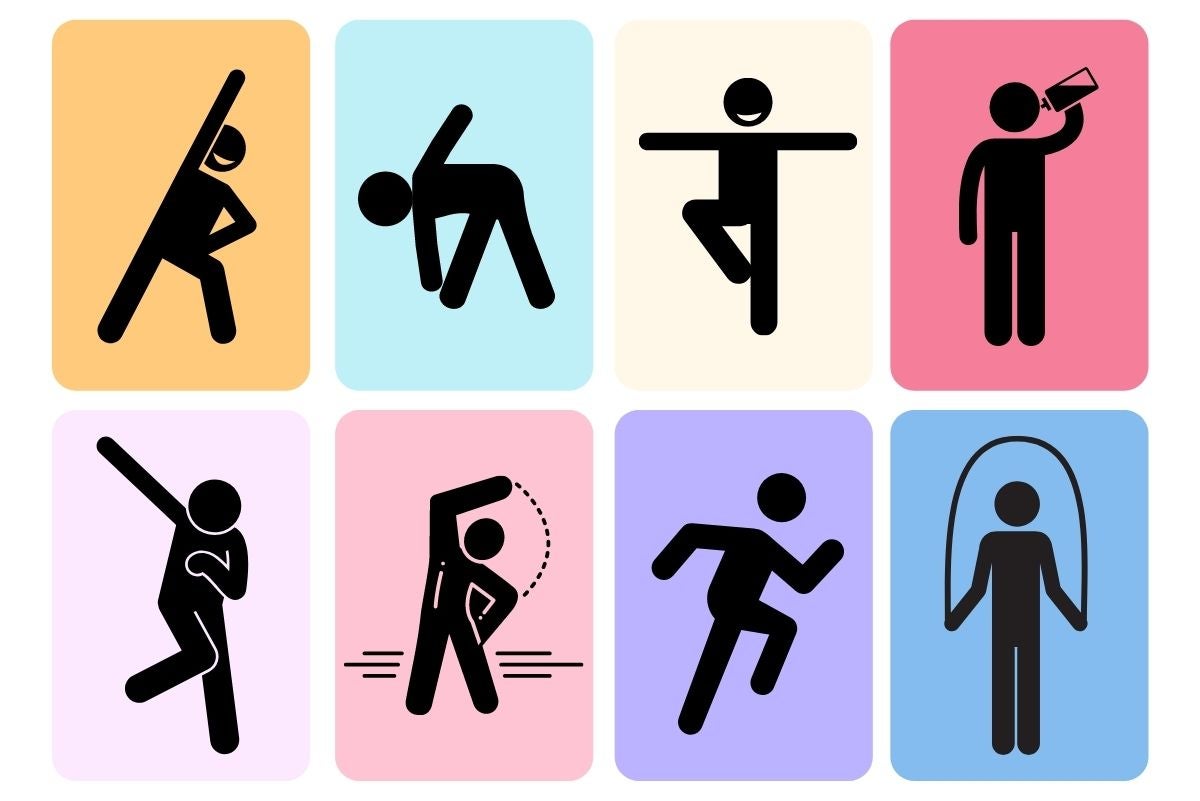What You Can Do to Prevent The Negative Effects of an Inactive Lifestyle
July 5, 2021
By: Olivia Kernels
Categories: Healthy Living
The CDC says that adults should be getting at least 150 minutes of moderate-intensity activity or 75 minutes of vigorous-intensity activity each week.
The CDC says that adults should be getting at least 150 minutes of moderate-intensity activity or 75 minutes of vigorous-intensity activity each week. While this may sound like a lot, it could be as simple as a 30-minute walk around your neighborhood five days a week. If you struggle with staying active, you are not alone -- about one quarter of U.S. adults are not active at all, and even more are not as active as they need to be for good health.
As many jobs continue to be conducted virtually, the temptation may be stronger than ever to plop down in front of a screen all day long. The negative consequences that come with a sedentary lifestyle are plenty, but the good news is that you have the power to change it.
How does an inactive lifestyle affect your body?
A sedentary lifestyle can have very serious health implications. Many health experts state that inactivity is one of the top 10 causes of death in the whole world. The main health conditions associated with physical inactivity are cardiovascular disease, diabetes, and obesity. Many people don’t know what actually occurs in your body when you live an inactive lifestyle. Here are a few:
- Your risk of heart attack and stroke increase
- Your risk of obesity increases, which can lead to conditions such as high blood pressure
- Your metabolism slows down, meaning you gain weight more easily
- You burn fewer calories, which also means you gain weight more easily
- Your bones get weaker, which can lead to osteoporosis and broken bones over time
- Your immune system weakens, which may mean you get sick more often
- Your risk of certain kinds of cancer may increase
The good news about these health implications is that they are totally preventable in most cases.
How does an inactive lifestyle affect your mind?
While a sedentary lifestyle often leads to poor physical health, it has similar effects on your mental health. Many doctors believe that physical inactivity highly contributes to mental health conditions such as depression. Similarly, sedentary lifestyles are sometimes associated with stress and anxiety. Unfortunately, there do not seem to be many – if any – mental health benefits deriving from physical inactivity.
On the other hand, an active lifestyle has many mental health benefits. Exercise reduces anxiety and depression by improving both self-confidence and cognitive function (probably through a combination of better blood flow to the brain and the release of mood-boosting hormones such as endorphins). Common benefits of adopting an exercise regimen include better sleep quality, an increase in energy, and stress relief. There is nothing like the feeling you get after completing a successful exercise session.
How can I start conducting an active lifestyle?
Oftentimes, people who may currently lead a more sedentary lifestyle think that making a commitment towards better health is time-consuming. It’s so important to know it’s not-- the best place to start after years of inactivity is a quick 5-10 minute exercise session. The exercise session could be a walk, yoga, or even strength training.
Many people coming from an inactive lifestyle have developed conditions related to inactivity such as diabetes, obesity, and heart disease. If this is the case, it is best to consult with a doctor regarding a proper exercise regimen which would not put unhealthy stress on your body. In fact, it is always wise to consult your doctor before beginning a new exercise regimen.
And remember, while your ultimate goal is to get to where you can complete 75-150 minutes of physical activity per week, you don’t have to start at that level. Everybody has to start somewhere and whatever conscious effort you are making to eradicate an inactive lifestyle is a good one!
Need help?
St. Mary’s Wellness Centers in Athens and Lavonia can help. Our friendly, highly trained staff are focused on partnering with you to map out a strategy that helps you set and achieve goals for better health. We welcome all adults at any fitness level, including people with medical limitations such as COPD. Caring staff, excellent equipment, fun classes, and convenient hours and locations make it easy to stay on track. Call us at (706) 389-3356 (Athens) or (706) 356-7411 (Lavonia) to learn more or schedule a tour.
